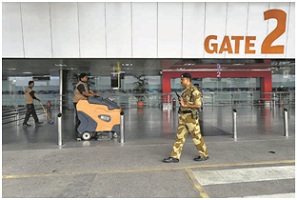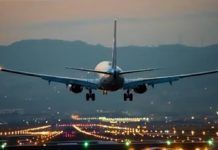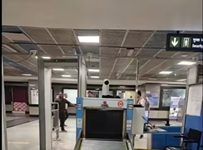In a quiet but significant move that bears semblance to the American model, authorities tasked with securing travel at Indian airports have been preparing to usher in changes, including discreet profiling of passengers and layers of clearance for staff.
The Bureau of Civil Aviation Security (BCAS) has tied up with the US Transportation Security Administration (TSA), which has started training the second batch of 50 Indian officials, said top security officials. The first batch of 50 completed its course and the second batch is training in Delhi now. They said it was part of the overall security training for Indian officials by the TSA to make travel more secure.
Aviation sector data shows India is one of the fastest-growing markets and during 2018, close to 14 crore passengers travelled through flights. With the government focusing on UDAN and activating airports in tier two and tier three cities, the numbers will only grow.
Among the new techniques, passenger profiling will allow experts to mingle with people in waiting areas to interpret body language for malicious intent. There is an additional layer wherein security agencies’ officers could strike up a conversation with passengers.
Other steps include restricting the movement of staff of various agencies that operate inside the airport, including airlines staff, luggage loaders, service support personnel and vendors. In the US, the TSA had introduced additional layers of security in view of threats. Earlier, the Civil Aviation Ministry informed Parliament that the BCAS issued a circular this April for installation of full body scanners at pre-embarkation security points, replacing the door frame metal detectors. Of the passengers cleared by this procedure, some 10 per cent at random will undergo physical search, including pat down.








